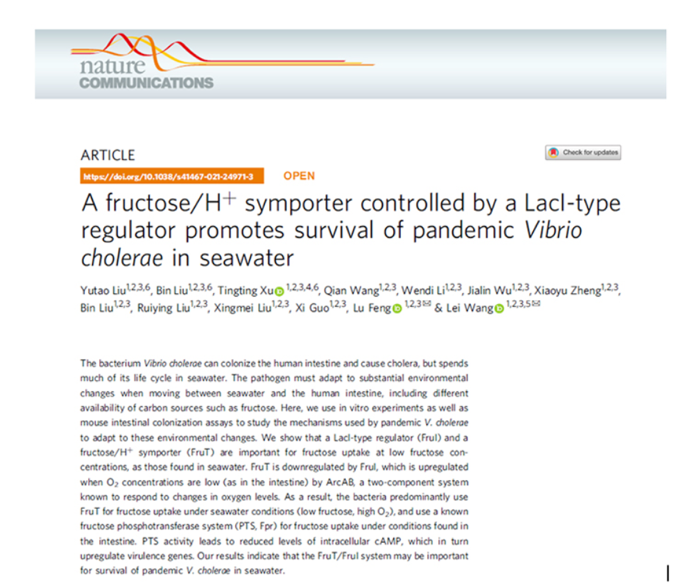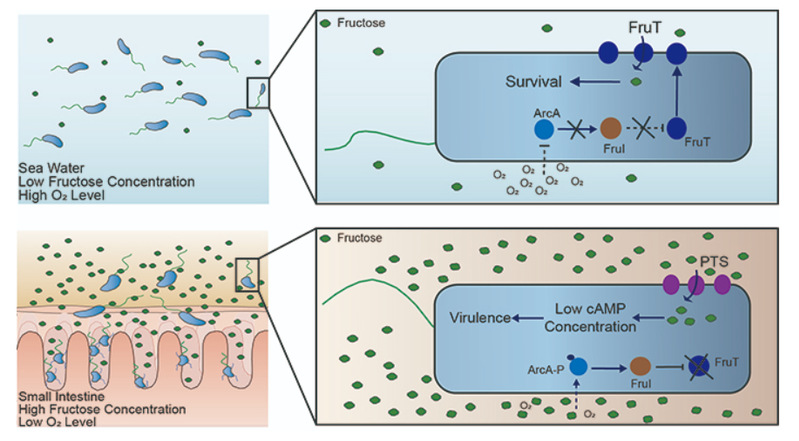Nankai Research Team Makes Progress in the Field of Pathogenic Bacteria Evolutionary Formation Mechanism and Pathogenic Mechanism
Recently, the team of Professor Wang Lei and Professor Feng Lu at Nankai University has made progress in the field of evolutionary formation mechanism and pathogenesis of pathogenic bacteria. Their research results, entitled A fructose/H+ symporter controlled by a LacI-type regulator promotes survival of pandemic Vibrio cholerae in seawater, is published online on July 31, 2021 in Nature Communications.


Figure: Fructose transport mechanisms of pandemic cholera strains in seawater and in the gut
Vibrio cholerae is one of the most important pathogenic bacteria in human history and still causes more than 100,000 deaths worldwide each year. Vibrio cholerae lives in seawater for a long time and can cause severe diarrhea when it enters the human body through contaminated water. The mechanism of how Vibrio cholerae survives in seawater for a long time and how it rapidly adapts to environmental changes and causes disease after entering the intestinal tract is still unclear; this is one of the hot spots and difficulties to be broken through in the research of pathogenic bacteria pathogenesis and environmental adaptation mechanism.
Through detailed comparative genomic and transcriptomic analyses, combined with extensive biological experiments, the research team has discovered and demonstrated that Vibrio cholerae pandemic strains have evolved a unique fructose/H+ symporter (FruT) compared to other non-pathogenic or less pathogenic strains; In seawater Vibrio cholerae senses the high oxygen signal, turns on FruT, promotes the uptake of fructose of low concentration, and improves the survival advantage of bacteria. Vibrio cholerae pandemic strains also acquire a corresponding LacI-type regulator(FruI); In the intestine Vibrio cholerae senses low oxygen signals and inhibits FruT expression by activating FruI, causing a decrease in intracellular cAMP (cyclic adenosine monophosphate) levels in the strain, thereby increasing the expression of a series of key pathogenic genes. This fructose transport and regulation system both enhances the viability of the pandemic cholera strain in seawater and maintains its high pathogenicity.
Postdoctoral Fellow Liu Yutao and Professor Liu Bin of Nankai University are the first authors of the paper, and Professor Wang Lei and Professor Feng Lu of Nankai University are the co-corresponding authors.
Link to the paper: https://www.nature.com/articles/s41467-021-24971-3
Reported by Liu Yutao, edited by Wei Chengjin.









